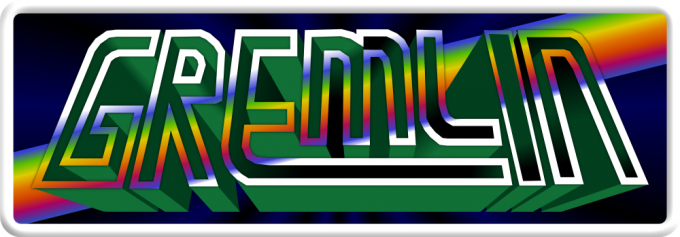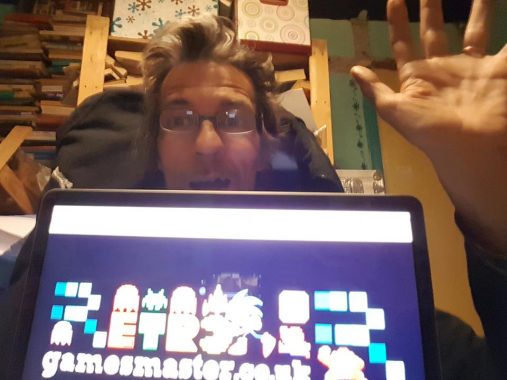
Ben Daglish Interview by Mark Hellewell and Peter Ward
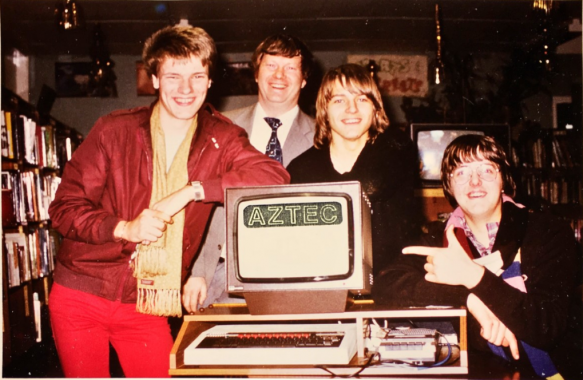
Music CV
C64 Classix (2005) (Track2 “The Last Ninja (lv1 extended remix)”, originally composed by)
Maziac (2005) (Music)
Platypus (2002) (Level Boss Music 1, excerpt from “Trap”)
Monty on the Norm (2001) (Music – Auf Wiedersehen Monty by)
Chronicles of the Sword (1996) (Music)
Druid: Daemons of the Mind (1995) (Music)
Rapid Assault (1995) (Original Music)
Touché: The Adventures of the Fifth Musketeer (1995) (Music by)
Legends of Valour (1992) (Audio)
Motörhead (1992) (Music)
Axel’s Magic Hammer (1990) (Music by)
Corporation (1990) (Music by)
Greg Norman’s Shark Attack!: The Ultimate Gol… (1990) (Audio)
Hot Rod (1990) (Sound)
Super Cars (1990) (Music)
Blasteroids (1989) (Music)
Butcher Hill (1989) (Music by)
Continental Circus (1989) (Music by)
Emilio Butragueño 2 (1989) (Music)
FOFT: Federation of Free Traders (1989) (Music)
Footballer of the Year 2 (1989) (Audio)
Gary Lineker’s Hot-Shot! (1989) (Music by)
H.A.T.E: Hostile All Terrain Encounter (1989) (Music by)
John Lowe’s Ultimate Darts (1989) (Music)
The Munsters (1989) (Music by)
Passing Shot (1989) (Music and sound)
The Real Stunt Experts (1989) (Music by)
Super Scramble Simulator (1989) (Sound)
Switchblade (1989) (Music)
Artura (1988) (Music by)
Cosmic Relief: Prof. Renegade to the Rescue (1988) (Music -)
Dark Fusion (1988) (Music)
The Flintstones (1988) (Music)
Gary Linekers Superskills (1988) (Music)
Mickey Mouse: The Computer Game (1988) (Music)
NorthStar (1988) (Music)
Pac-Mania (1988) (Music arranged by)
Skate Crazy (1988) (Music)
Supersports: The Alternative Olympics (1988) (Music by)
VENOM Strikes Back (1988) (Music)
3D Galax (1987) (Music by)
720º (1987) (Music by)
Auf Wiedersehen Monty (1987) (Music by)
Basil the Great Mouse Detective (1987) (Music)
Bulldog (1987) (Music by)
Coil Cop (1987) (Music by)
Deathscape (1987) (Music)
Death Wish 3 (1987) (Music by)
Deflektor (1987) (Music by)
Duel Master: Blood Valley (1987) (Music by (uncredited))
Gauntlet II (1987) (Title music)
Gauntlet: The Deeper Dungeons (1987) (Music:)
Jack the Nipper… II in Coconut Capers (1987) (Music)
Krakout (1987) (Music by)
The Last Ninja (1987) (Music by)
MASK (1987) (Music)
Rampage (1987) (Music by)
Sports-A-Roni (1987) (Music)
Wizard Warz (1987) (Music (uncredited))
Ark Pandora (1986) (Music by)
Cobra (1986) (Music by)
Footballer of the Year (1986) (Music by)
Harvey Headbanger (1986) (Music)
Jack the Nipper (1986) (Score by)
Trap (1986) (Music)
Black Thunder (1985) (Music)
Gauntlet (1985) (Music)
The Vikings (1985) (Music)
William Wobbler (1985) (Music by)
Percy the Potty Pigeon (1984) (Musician)
(Pete Ward Questions)
Thank you for agreeing to doing an interview it is an honour to interview such a talented musician.
What did you want to do for a career when you were at school, and what was your first job?
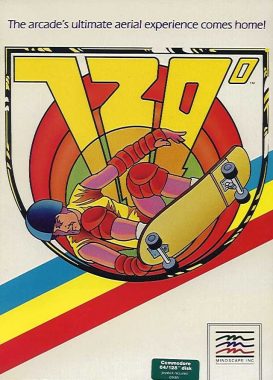
When did you realise you wanted to get into the game industry, and how did it happen?
What computer did you first own? Would you say this was your favourite computer?
What is you most favourite music you worked on?
TRAP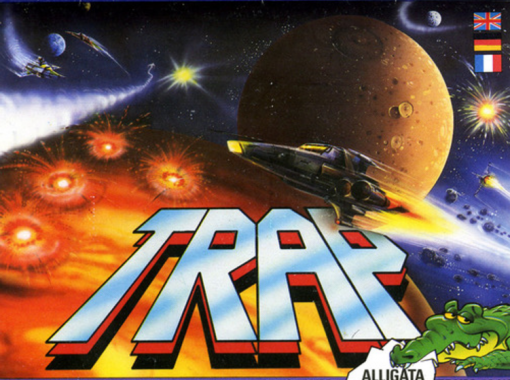
Which other composers did you like? we have interviewed Matt Gray, Barry Leitch and Allister Brimble
What music that you composed are your favourites?
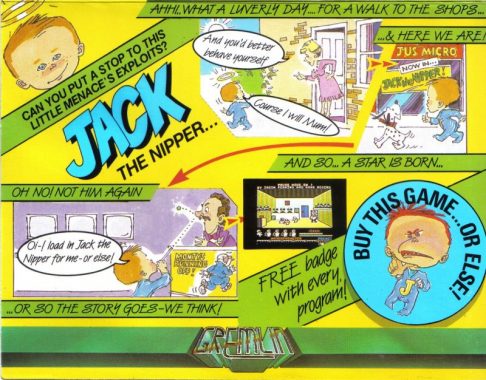
Tell us about W.E.M.U.S.I.C?
(Mark Hellewell Questions)
You’re a well know C64 composer, but you did work
on formats. Which other formats did you work on and which were the easiest and hardest to compose on?
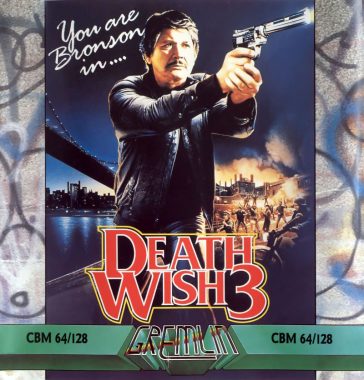
Tony Crowther programmer who we interviewed recently you went to school and worked with do you have any amusing stories about him or the two of you?
In 1987 you worked on the soundtrack to Auf Wiedersehen Monty with Rob Hubbard.
Yes I did.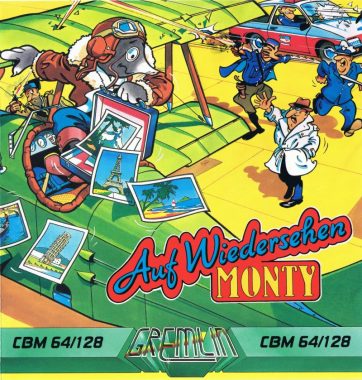
Please tell us about this. Two ‘big name’ musicians working together on a C64 game soundtrack was fairly unusual at the time, and indeed since. I’ve often wondered how this colaboration came to be?
And how the process of composition differed working alongside another musician as opposed to writing solo.
We just jammed – it was extremely easy.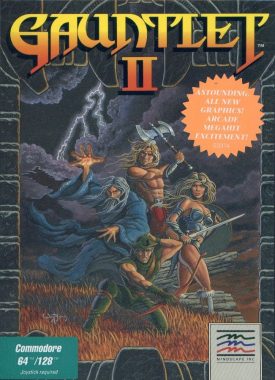
Who did what when it came down to the nitty gritty of the writing & programming.
the programming was Rob – he was rightly very jealous of his player, which indeed was a marvel, and so once we’d worked out how it would all go, Rob locked himself in the studio for a few hours, and emerged with the thing fully programmed.
Also, as this was a follow up to one of Rob’s breakthrough tracks, along with Thing on a Spring, was the prospect of matching and topping the original Monty on the Run soundtrack daunting at any stage?
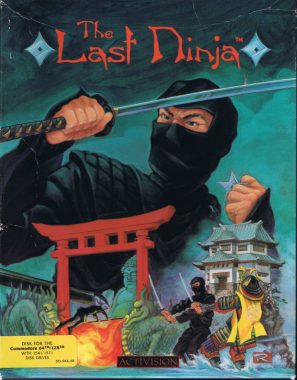
An epic game with an epic soundtrack, 1987’s The Last Ninja from System 3, was a step up in many ways for C64 game soundtracks, not only for yourself but for the 64. Stepping away from the title-screen / in-game ‘ditty’ to a fully blown ‘movie style’ soundtrack. Co-produced with a Anthony Lees, what are your memories of this work?
Was writing music part of your life before the 64, and if so in what form, did you imagine you could have made money from music before the 64 came along ?
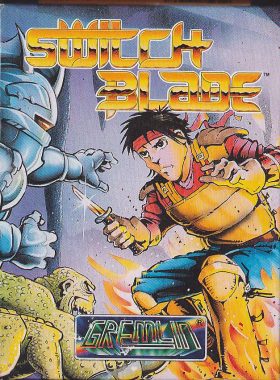
The ‘demo-scene’ was heavily inspired by the C64’s musical pioneers such as yourself, Rob Hubbard, Martin Galway, Fred Gray, Tim Folin etc. Did you follow the demo scene at all during your time on the C64 or the Amiga and did you ever find yourself then being influenced by the works it produced or surprised by the musical references to yourself?
The late 80’s brought the hugely popular Amiga 500 which became the ‘next machine to own’ for many C64 owners. Many C64 ‘heroes’ were missing from the Amiga but you carried over with some succses. Can you tell us a little about how working with the Amiga was different to the 64?
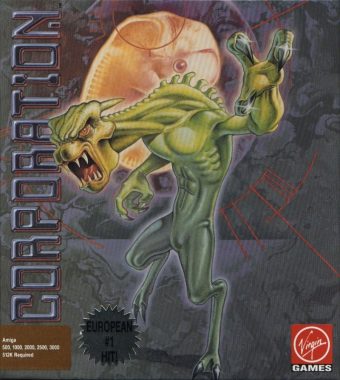
The dawn of the internet brought together what became to be known as the ‘retro gaming community’; passionate fans of the machines they grew up with. Did you ever think possible that more than 30 years ago people would still be listening to the tunes you made on what is now rather humble yet endeering hardware and what does it mean to you?
No – never at all. It means an enormous amount – incredible to still be turning up to conventions and events and hearing from the people for whom you wrote their childhood soundtrack.
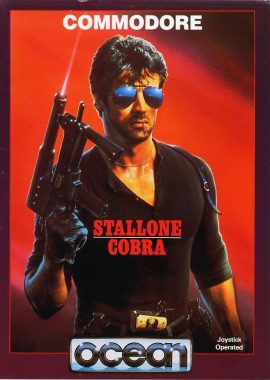
(Pete Ward Questions)
What formats have you created on, which was the easiest to create music on, and which was the most complex?
What games did you work on? Please include a list of titles and some details about the music?
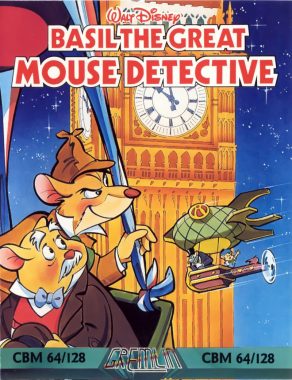
I have fond memories and I feel the music soundtrack is an integral part of the game. Did you play the games to get a feel for the music you were going to create?
Can you please educate us as to the process you would go through when creating music for a game?
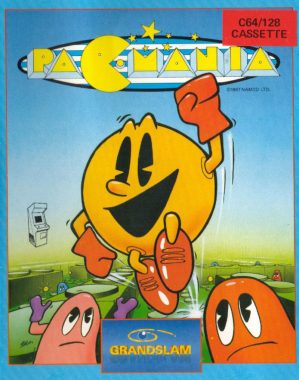
What advice would you give to somebody trying to get into the game sound industry?
Tell us what you are currently working on?
My day job – programming network device backup software.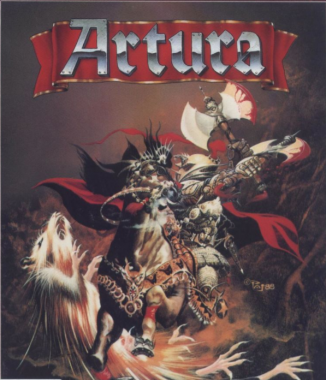
I enjoy some modern games but feel more love for the smaller teams of the past. I feel the fun factor has gone in modern games and are more like movie productions; games can be bug ridden now as patches can be made. In the past we didn’t have updates and in-app purchases. What is your view of our industry now?
Here are some questions about retro games:
My favourite computer was my Amiga and 2 of my favourite games were Cannon Fodder and SWOS ? and my favourite console was the Megadrive. Do you have a favourite?
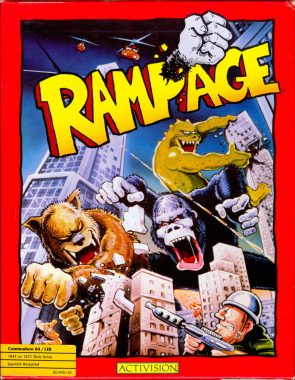
What is your favourite retro game?
Do you still game on the current consoles? If so which is your favourite game?
Whats the worst game you have ever played?


